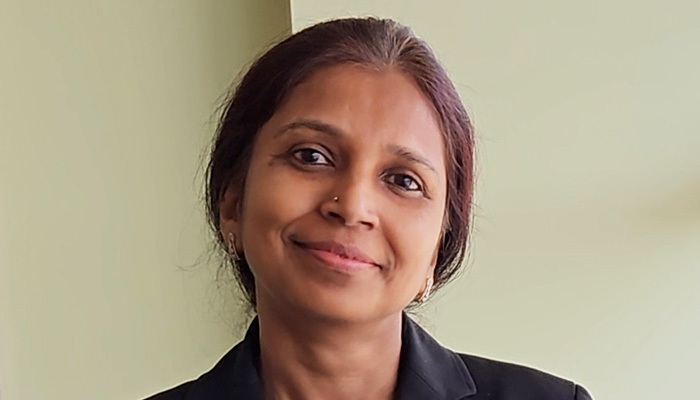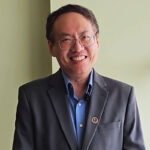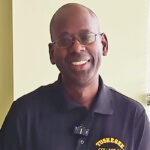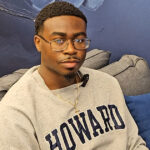When Dr. Darsana Josyula steps into her lab at Bowie State University, she is surrounded by the spirit of collaboration. Postdoctoral fellows, graduate students, undergraduates, and even high school interns gather in the space, trading ideas developing new technologies. It is a lively environment that reflects her own philosophy: research is not just about machines and algorithms, but about people working together to push the boundaries of knowledge. That commitment was recently recognized with the Elkins Professorship from the University System of Maryland, one of the highest honors in the state, celebrating her pioneering work in artificial intelligence and autonomous systems as well as the thriving community she has built around it.
Q: Can you introduce yourself and your field of study?
Darsana Josyula: I am a Professor in the Department of Computer Science at Bowie State University. My work focuses on areas like knowledge representation, reasoning architectures, explainable AI, anomaly detection, and autonomous systems.
Q: What first inspired you to pursue computer science?
Ever since I was a child, I was fascinated by the ability of humans to create something that could think in a way similar to us. Programming captured my imagination from the very first time I saw a computer. I simply fell in love with it, and that curiosity has stayed with me throughout my career.
Q: What brought you to RITA?
When Howard University was applying for this effort, I was already working on several Department of War projects related to autonomy. This opportunity was particularly exciting because it gave multiple universities a chance to be part of something significant in the autonomy space. I wanted Bowie State to be part of it, so I joined the RITA initiative.
Q: What does a typical day of research look like for you?
I run a lab with several postdocs, graduate students, undergraduates, and sometimes even high school students. Most mornings I stop by to check in, say hello, and make sure everything is running smoothly. We have regular project meetings, but my favorite part is the informal interactions. Students know where to find me, and they often drop in to discuss their work. The lab has become a welcoming space where people want to be, even students who are not formally part of my group often ask if they can join.
Q: What do you enjoy most about working with students?
Watching how students grow and evolve through the research process is truly rewarding. Many of my doctoral graduates return to mentor current students, which creates a strong sense of community. The lab has become more than a research space. It is a place where people support one another, and that is something I deeply value.
Q: What professional milestone are you most proud of?
Recently, I was honored with the Elkins Professorship from the University System of Maryland. It was an incredible recognition of the work happening in my lab and at Bowie State. The process of applying was hectic because I had very little time, but the way my students, colleagues, and leaders rallied around me was extraordinary. Within a single day, everyone contributed recommendation letters and support. That moment showed me that we are building more than machines and algorithms, we are building a community of people who genuinely want to work together and lift each other up.
Q: If you could share a coffee with any scientist, living or historical, who would it be?
I have always been fascinated by Marie Curie. Learning about her as a young student, I admired how she pursued science during a time when it was extremely difficult for women to do so. Her pioneering work with X-rays and radioactivity was groundbreaking, but what inspires me most is her perseverance. I would love to sit down with her and understand how she thought about the challenges she faced and what kept her going.
Q: What makes your work meaningful for the next generation?
Beyond the technical accomplishments, I believe it is important to show students that science is about building communities and opportunities. The technology is important, but the people who create it matter even more. I want students to know they can innovate, lead, and contribute to society in ways that go far beyond code or machines.





